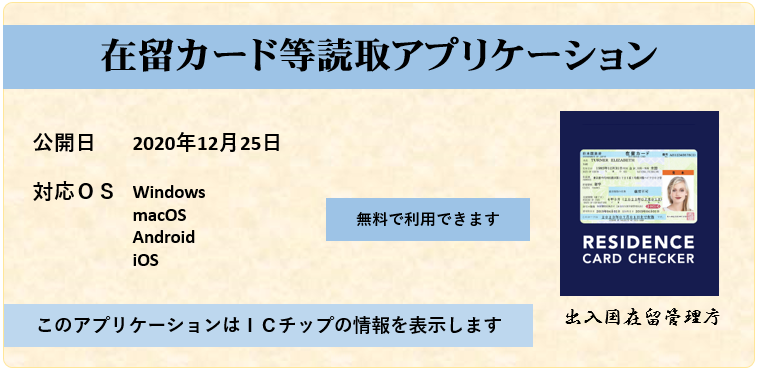mytest
Books, eBooks, and more from Debito Arudou, Ph.D. (click on icon):





![]()


UPDATES ON TWITTER: arudoudebito
DEBITO.ORG PODCASTS on iTunes, subscribe free
“LIKE” US on Facebook at http://www.facebook.com/debitoorg
https://www.facebook.com/embeddedrcsmJapan
http://www.facebook.com/handbookimmigrants
https://www.facebook.com/JapaneseOnlyTheBook
https://www.facebook.com/BookInAppropriate
Hi Blog. At long last, I can get to this issue.
As I have written elsewhere, Japan’s Immigration Bureau Detention Centers (aka “Gaijin Tanks“) are an extra layer of incarceration that only non-citizens must deal with.
Regular Wajin Japanese, when detained, arrested, and/or incarcerated, go through Japan’s criminal justice and prison system. However, because non-citizen detainees cannot renew their visas while in detention, any arrest and incarceration by police increases the probability of detention later in separate Immigration detention facilities (specifically reserved for non-citizen visa overstayers and refugees/asylum seekers). Detainees in these Immigration facilities (nyūkoku kanri sentā) face a different system both in terms of criminal procedure and living conditions.
In terms of procedure, inmates convicted of a specific crime and sentenced to a Japanese prison have a legally-defined release date, often with the possibility of parole; visa overstayers being detained in an Immigration detention center, however, have no specific limit to their detention period, resulting in people detained for several years (and for some, still counting).
In terms of living conditions, rights of detainees to adequate food, exercise and living space in Immigration Bureau detention centers are less regulated than in Japanese prisons (which are subject to international oversight regarding standards of favorable treatment). Consequently, inhospitable, unsanitary, and generally unmonitored conditions in these detention centers have occasioned protests both from human rights organizations and from the detainees, in the form of hunger strikes and suicides. Immigration detainees have also suffered and died from their medical conditions being neglected by detention officials, and from the over-prescription of sedatives and painkillers.
In 2021, the senseless death of a Sri Lankan named Ratnayake Liyanage Wishma Sandamali, due to medical negligence in a detention center, brought national attention and protest against the GOJ’s treatment of visa overstayers and asylum applicants—and the withdrawal of a bill before the Diet that would have only strengthened the ability for bureaucrats “to keep any foreign national in custody without the approval of a judge”, thus violating constitutional guarantees of due process.
Those are the headlines. Now for the sources:
- See for example CCPR/C/79/Add.102, which notes, “[T]he Committee is concerned that there is no independent authority to which complaints of ill-treatment by the police and immigration officials can be addressed for investigation and redress. The Committee recommends that such an independent body or authority be set up by the State party without delay.” United Nations, November 19, 1998; “Welcome to Japan?” Amnesty International, 2002, alleging extortion and physical abuse at the Narita Airport detention center, excerpt archived at www.debito.org/?p=9846.
- “Detention centers lack doctors: Two facilities holding visa violators not offering proper medical care.” Daily Yomiuri, December 22, 2006 (the Japanese version of this article, dated December 21, has the more revealing headline, “Ōmura nyūkan sentā de jōkin-i fuzai 2 nen ni, kakuho no medo tatazu” [The Ōmura Detention Center has had no full-time doctor on call for two years now, and no idea when they will secure one].
- Interviews, Michael. H. Fox, Director, Japan Innocence and Death Penalty Research Center, 2004-8.
- “Caterpillars and cockroaches: Foreigners lead hunger strike in immigration detention center.” Asahi Shinbun, October 18, 2007.
- “Detainees allege abuse at Kansai holding center.” Japan Times, March 9, 2010.
- “Immigration detainees end hunger strike.” Japan Times, March 22, 2010; “Inmates on hunger strike in Japan immigration center.” AFP, May 20, 2010; “Running to nowhere.” Kansai Time Out, June 2010.
- “Deportee center hunger strike abates, detentions drag on.” Japan Times, September 1, 2012; “Nigerian dies after hunger strike in Japan detention center.” Reuters/Asahi Shinbun Asia-Japan Watch, June 27, 2019; “Death in Detention: Grim toll mounts in Japanese detention centers as foreigners seek asylum.” Reuters, March 8, 2016, archived at www.debito.org/?p=13885, noting: “The watchdog report drew attention to what it said was the heavy prescription of drugs to detainees. At the time he died, Ghadimi had been prescribed 15 different drugs, including four painkillers, five sedatives—one a Japanese version of the tranquilizer Xanax—and two kinds of sleeping pills, the report said. At one point during his incarceration, he was on a cocktail of 25 different pills.”
-
“Ex-immigration boss: detentions too long.” Japan Times, July 14, 2010, former Immigration Bureau chief Sakanaka Hidenori proposed that detentions in Immigration facilities not exceed one year; however, once oversight mechanisms were activated in August 2011, the number of detainees awaiting deportation or asylum permission for more than six months dropped dramatically (indicating how lax oversight had hitherto been).See “Foreigners held by immigration sharply down after reviewing rules.” Mainichi Shinbun, February 4, 2012.
- Nevertheless, abuses, some resulting in fatalities, continue to the present. See for example “Asylum-seeker dies after collapsing at detention center while doctor at lunch.” AFP/Japan Today and Japan Times, October 25, 2013; “Immigration detention centers under scrutiny in Japan after fourth death.” Reuters, December 3, 2014; “Immigration detention centers like prisons, U.K. inspectors say.” Japan Times, February 6, 2015; “Immigration detention centers like prisons, U.K. inspectors say.” Japan Times, February 6, 2015—and I make the case that they are worse than prisons at www.debito.org/?p=13056
- “Progressive News Service: Deaths of unknown persons in the custody of the Tokyo Metropolitan Police: At least 5 in past year.” Debito.org, March 9, 2015, www.debito.org/?p=13136
- “Sri Lankan woman dies in detention, wrote about her hunger.” Asahi Shinbun, March 15, 2021; “A Sri Lankan’s tragic death in Japan casts a harsh spotlight on controversial refugee system.” Straits Times, April 24, 2021, which notes, “Ms. Wishma was vomiting blood in her final days, and was so weak that she had no control of her arms and legs. The immigration authorities allegedly turned a blind eye to medical expert advice to put her on an intravenous drip or to grant her provisional release to ease her stress. A report by public broadcaster NHK suggested that officials tend to suspect malingering for minor illnesses in their reluctance to grant provisional release.”
- Finally, “Left in limbo: Japan’s haphazard immigration policies, disrespect for human rights.” Mainichi Shinbun, April 19, 2019, notes,As of the end of July 2018, of the 1,309 detainees nationwide, 54 percent had been detained for six months or longer. According to attorneys and others who provide assistance to foreign workers in Japan, 13 foreign nationals died by suicide or from illness while in detention between 2007 and 2018. Many detainees complain of appalling health conditions at detention centers, saying they are hardly permitted to see physicians. A damages lawsuit brought against the central government at the Mito District Court for the 2014 death of a then 43-year-old Cameroonian man while he was detained at Higashi Nihon Immigration Center in the Ibaraki Prefecture city of Ushiku is ongoing. His mother, who resides in Cameroon, filed the suit.According to the legal complaint that was filed, the man had been confirmed as diabetic after a medical consultation at the immigration center. He began to complain of pain in February 2014, and died at the end of March that year. Security cameras at the center captured him saying in English that he felt like he was dying starting the night before his death, and the footage has been saved as evidence. Even after the man fell from his bed, he was left unattended, and a staff member found him in cardiopulmonary arrest the following morning. He was transported to a hospital where he was confirmed dead. “Immigration officials have a duty to provide emergency medical care,” says the plaintiff’s attorney, Koichi Kodama. “The government should be accountable for revealing who was watching the footage of the man rolling around on the floor, screaming in pain, and whether anyone went directly to his room to check on his condition.”
- “Sri Lankan’s death in spotlight as Japan debates immigration bill.”
Japan Times/Kyodo News, May 12, 2021; “Immigration reform fails to resolve asylum contradictions.” Japan Times, March 13, 2021; “Withdrawal of immigration bill underscores Suga’s precarious standing.” Japan Times/Kyodo News, May 19, 2021.
There are plenty of other articles out there, since the Wishma Sandamali Case attracted so much attention. However, it was not soon enough for some, and won’t be for others still being destroyed by this system. For as Submitter JK notes,
============================
“Relindis Mai Ekei did not die in detention [in January 2021] like Wishma Sandamali. Instead, she died in hospital [of untreated breast cancer] about three hours before receiving her residence card (在留カード):
Was Cameroonian woman’s death hours before she received Japan residency avoidable? (Pt. 1)
Was Cameroonian woman’s death hours before she received Japan residency avoidable? (Pt. 2)
Was Cameroonian woman’s death hours before she received Japan residency avoidable? (Pt. 3)
死の直前「漢字勉強したい」カメルーン出身者は救えなかったのか
From the article:
If Mai’s status of residence had been granted earlier, she would have been able to take better care of herself through welfare and health insurance.
============================
Even more on the Gaijin Tanks issue starting from here: https://www.debito.org/?p=13885#comment-1805327.
There is no defense for this inhumane extralegal detention system that is killing people through willful negligence simply because they are foreigners incarcerated. We catalog it all here on Debito.org for the record. Debito Arudou, Ph.D.
======================
Do you like what you read on Debito.org? Want to help keep the archive active and support Debito.org’s activities? Please consider donating a little something. More details here. Or if you prefer something less complicated, just click on an advertisement below.











 \
\










